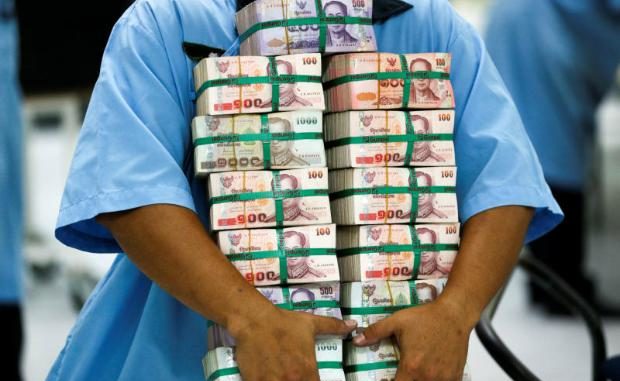
Bankok Thailand – Nonperforming loans at Thailand’s banks are set to peak toward the end of 2017, according to Fitch Ratings, an outlook that may salve investor sentiment in one of Asia’s worst-performing stock markets this year.
Thai economic growth is subdued but relatively stable at about 3%, signaling a slower expansion in bad loans in the months ahead and an eventual peak by year’s end or just after, said Parson Singha, senior director for financial institutions at Fitch Ratings in Bangkok.
“It depends a lot on how the economic cycle goes,” Mr Parson said in an interview Monday. “Growth has been relatively weak for the past several years, but at the same time it does look like the business environment has not been fundamentally poor, and banks have been tightening their underwriting standards.”
Gross nonperforming loans at commercial banks climbed to 2.94% of total loans in the first quarter, Bank of Thailand data show. That’s the highest level since 2011, underscoring challenges for lenders from a lacklustre economy and elevated household debt. For now, Fitch continues to have a negative outlook on the country’s banking sector, Parson said.
The banking sector has a combined market value of roughly 2.2 trillion baht ($65 billion) or 14% of the SET Index’s total stock market value.
Rising bad loans risk denting investor sentiment. The SET index has advanced 2.3% in 2017, the least after China among major Asian stock markets.
The Thai government’s plan to accelerate major infrastructure projects could bolster investor confidence by increasing demand for new loans and so help to lower the bad-debt ratio, said Prapas Tonpibulsak, chief investment officer at Talis Asset Management Co. in Bangkok.
Based on its own calculations, Fitch estimates the combined ratio for Thailand’s nonperforming and special-mention loans at 6.6% in the first quarter. Special-mention loans are those between one month and three months overdue.
China had a nonperforming loan ratio of 1.74% at the end of March. In India, stressed assets rose to about 17% of total loans by December.
Even after bad loans peak in Thailand, new accounting rules due to be implemented in 2019 will prevent banks from undertaking very aggressive lending, according to Mr Parson. The standards, called IFRS 9, are likely to lead to increased provisioning and banks are already taking steps to prepare, he said.
Thailand’s economy may expand about 3% in 2017, trailing behind neighbours such as Indonesia and Malaysia, International Monetary Fund estimates show. Depressed private-sector investment is among the challenges facing the country’s military government, which seized power in a 2014 coup.